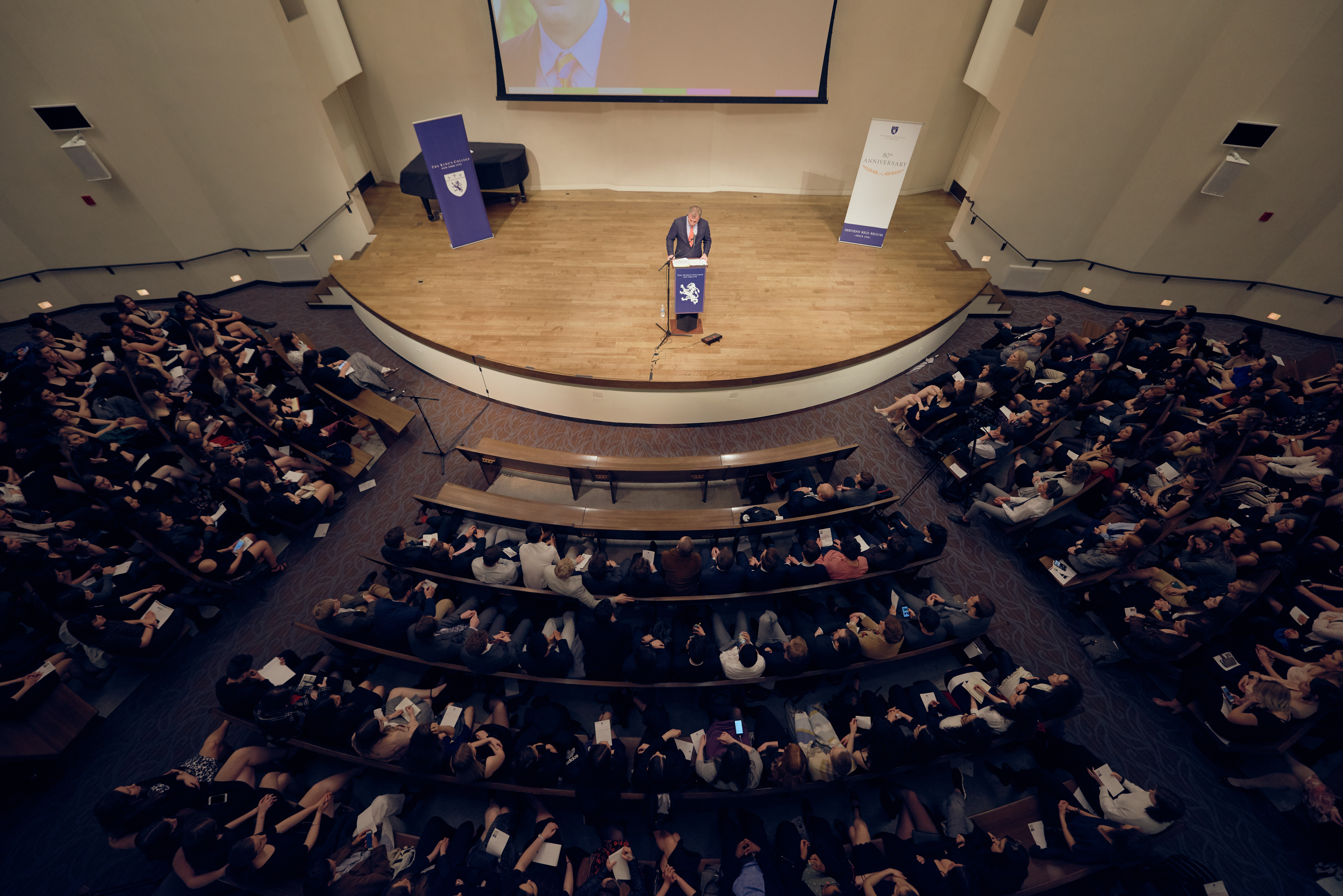Interregnum XI: Each Day Dies with Sleep
Students and faculty of the King’s College gathered at Calvary-St. George’s Church in downtown Manhattan to hear Dr. Carl R. Trueman speak at the final event of Interregnum, an all-school, three-day competition.

On April 10, students and faculty of the King’s College gathered at Calvary-St. George’s Church in downtown Manhattan to hear Dr. Carl R. Trueman speak at the final event of Interregnum, an all-school, three-day competition between the Houses.
Trueman is an author, theologian, historian, and Professor of Church History at Westminster Theological Seminary. He spoke on the 2014-15 Interregnum theme—mortality—in a talk titled “Each Day Dies with Sleep: A Literary and Theological Exploration of Mortality.”
In his talk, Trueman explained that death has fascinated authors and scholars for generations, and explored philosopher Roger Scruton’s take on death: that it makes life more valuable, since life is finite. However, said Trueman, we always want life to continue, and live as if we are going to live forever—even though we know that we are not. This presents an interesting paradox that philosophers and artists have tried to navigate for ages.
Trueman also talked about the barrier between the dead and the living, and how every culture has tried to lessen that boundary. Things like spiritualism, mediums, and clairvoyants (especially in pop culture) show an attempt to surmount the barrier between the dead and the living and make it seem less serious.
Even in the church, Trueman argued, we do not take death as seriously as we should, as “Celebrations of Life” have replaced traditional funerals. Trueman compared this to bankruptcy, saying it doesn’t matter how much money you had when you were rich if you are now bankrupt. Similarly, this shows the church trying to lessen the very present reality of death.
This is also played out in modern culture. Trueman focused especially on the relationship between death and plastic surgery (the attempt to look young), and death and sex—both are ways of ignoring or avoiding the fact of mortality. In our culture, said Trueman, death is “pushed to the margins.” He said that the huge role that entertainment plays in modern culture is significant because it serves as a way of distracting ourselves from death, and he compared modern culture to the frivolous, luxurious culture of France in Pascal’s time. All of this entertainment distracts us from silent contemplation of our mortality. Similarly, sex is another way of pushing the fact of our mortality into the background.
However much we are able to distract ourselves, however, Trueman said that human nature is undefeatable in the end—and death is part of that nature. We can pretend it doesn’t exist, but only for a certain amount of time. He addressed controversial topics such as euthanasia and abortion, saying that these were ways of trying to assert sovereignty and control over our lives.
Trueman then looked at death through a Christian perspective, saying that Christians should reflect on their mortality with the understanding that it is critical to how we live our lives. Christianity will always be relevant, he said, because people will always be asking questions about the meaning of life.
He also said that Christians must give death its due, and not deny or lessen its presence. Death hurts because it is a privation of being, and Christians must acknowledge that “life is fragile, and death is devastating.” The hope of the resurrection must be set within the reality of death, or it is meaningless. Acknowledging mortality means acknowledging the ravages of the fall—that life is not as it should be, and we are not sovereign.
The Interregnum committee then announced the winners. The House of Corrie Ten Boom took home both the House Cup and the Interregnum Cup. The House of Sojourner Truth took second place in Interregnum, followed by the House of Margaret Thatcher.




